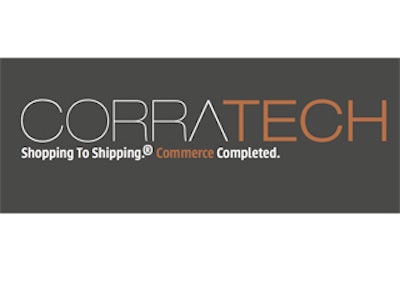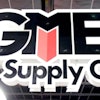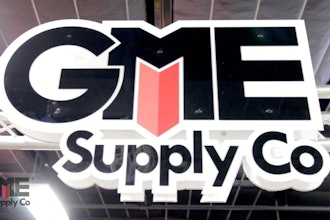
When it comes to selecting an eCommerce agency or systems integrator, merchants have lots of options to choose from. While it’s tempting to sway from one firm to another because of their lowballed price or fancy corporate presentation, there are some basic criteria all clients should ask about before signing on the dotted line.
Here’s a quick overview of questions to ask eCommerce agencies when deciding which to hire:
1. Are they effective?
It may seem like an obvious question, but knowing whether or not an eCommerce agency is effective is trickier than you might think. More than which big brands highlight their client list, it matters what hard, measurable ROI they garnered for those brands. Look for stats, reviews, and any indication that their eCommerce solutions have had a positive effect on conversion, average order value, or repurchase rates.
2. What’s their development/project management methodology (Waterfall, Agile, Rapid Application Development (RAD), other)?
An agency’s delivery model isn’t usually high on potential clients’ checklists. Yet, more than any other factor, knowing how a firm runs its projects will predict your own project’s success. An eCommerce Agency whose project management methodology consists of bullet-points in Basecamp will probably have a hard time delivering your project on time and on budget.
Here’s why—as tactical priorities change and as various stakeholders weigh in, even the best-scoped projects will need mid-stream adjustments here and there. A good PM methodology should be flexible enough to accommodate those tweaks as they come, without derailing the overall project. Furthermore, a well defined and agreed upon change control process is essential.
A good way to test their PM chops? Request a sample project plan and be sure to take a close look at the types of activities it includes. How and how much does the agency plan to be in communication with you? Will you get regular updates on project status and financial burn? How often? Also, be sure it’s clear what’s expected of you and your staff. Asking these questions beforehand will ensure that there are no surprises for you throughout the project, that you receive total transparency from the agency, and that you’ll meet all your targets and deadlines.
3. Do their designs have a user-centered focus?
Chances are the reason you’ve decided to build or enhance your eCommerce store is to improve your customer (i.e. user) experience. In that case, it only makes sense to partner with an eCommerce agency whose design team focuses heavily on just that—improving the user experience.
An agency with sophisticated design chops will be able to show you examples of the progression of designs from whiteboard sketch to fully documented clickable wireframes to finished graphic designs. They’ll be able to explain in detail their approach to working with you to develop those designs. Look for references to “Human Centered Design” or approaches like incorporating user feedback alongside the project stakeholders’ opinions.
Finally, make sure that they aren’t so set on their designs that they are defensive about trying out new ideas. One of the best means of increasing conversion rates is to use multi-variant testing in the live environment to optimize design elements. Even changes as subtle as the color or placement of a button can have dramatic effects on conversion rates. A first rate eCommerce agency will be able to explain all of the above without batting an eye and be able to show you examples of their work in these areas. (If you want to be really picky, you could even ask your prospective agency about any awards they’ve won for eCommerce sites they have developed.)
4. How many active projects do they have? How will they staff your project?
Aside from wanting to be sure they have enough time and manpower to adequately focus on your project, knowing your eCommerce agency’s workload gives indirect insight into how in-demand their services are. While having twenty developers and 20 projects is a red flag (they’ll have no time!), having twenty developers and only one project among them is just as troubling. Look for a good balance of the two.
Furthermore, while the absolute number of employees is important in assessing the breadth and depth of the agency, you should also ask how they will staff your particular project. At a minimum, a well-staffed eCommerce project should include an analyst, a project manager, a solutions architect and/or tech lead, and several certified developers.
5. Do they offer support and maintenance after launch? How?
How do you, the client, plan to manage your eCommerce system once it is up and running? Even if you have in-house developers, you’re going to want a professional support organization to have your back if anything goes wrong. The eCommerce industry is littered with tales of agencies and system integrators who “go missing” after launch. It is vital that you understand how the prospective agency intends to support you after launch.
To wit, most small development companies work off the project team model: 2-3 project teams move from project to project, providing both implementation and subsequent support. The problem with this model is that once the teams have deployed, let’s say, six sites, they are stuck supporting those six sites, even though new, incoming projects demand their time and attention as well. The result is an overwhelmed development staff and subpar service to you, the client.
Instead, look for firms who have a dedicated support team, and ask how you would interact with those individuals. They should have an online ticketing system with 24/7 access, options that include phone support, and guaranteed SLAs (service level agreements).
6. How long will it take?
It’s kind of tricky for a client who’s not that familiar with project implementation to figure out exactly how long their project should take to complete. While projects are usually billed hourly, bee lining to the eCommerce agency who proposes the fewest number of hours is likely not the best choice. Some firms will lowball their estimate in an attempt to garner the business (knowing full well they’ll have to bill extra time later). Others might underestimate the hours simply because they don’t fully understand how complex the project is and therefore how long it will take.
A good way around this is to collect proposals from a number of firms, and compare all their estimates. If only one company claims to be able to complete the project in 4 weeks while the rest ask for 8, that is a red flag that needs to be discussed in detail.
7. Is the contract clear? Do the agreements accurately describe the project you want to implement?
Make sure the details of the project you want are included in the proposal and/or agreements. Anything that is not written down is not included in the scope. Therefore, it’s always better to be safe and over-document requirements than to be sorry you missed something you thought was obvious or implied.
Conclusion
In short, launching or relaunching an eCommerce site can be a handwringing undertaking for any business. Since online sales represent a major component of overall revenue for most companies these days, it’s crucial to entrust this part of your business to the right eCommerce agency—one that knows what it’s doing, is transparent about its process, and is fair in its pricing. Follow this guide, and you’re bound to find the perfect eCommerce agency for your project
Ken Fajardo is a Senior Solutions Engineer for CorraTech, a leading provider of eCommerce and multi-channel commerce solutions. CorraTech was recently honored with the 2011 Magento Partner Excellence Award, one of only 5 U.S. companies to receive the distinction. Corratech won Best in Class in eCommerce in the Interactive Media Awards competition for their work with the Ten Thousand Villages website.


















